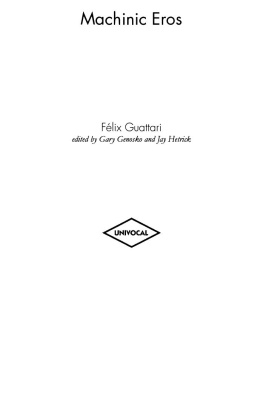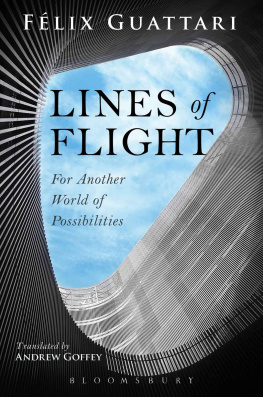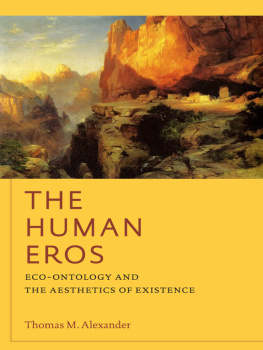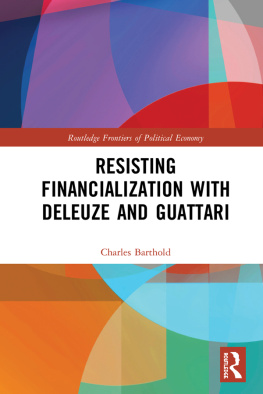Félix Guattari - Machinic Eros: Writings on Japan
Here you can read online Félix Guattari - Machinic Eros: Writings on Japan full text of the book (entire story) in english for free. Download pdf and epub, get meaning, cover and reviews about this ebook. year: 2015, publisher: U of Minnesota Press, genre: Religion. Description of the work, (preface) as well as reviews are available. Best literature library LitArk.com created for fans of good reading and offers a wide selection of genres:
Romance novel
Science fiction
Adventure
Detective
Science
History
Home and family
Prose
Art
Politics
Computer
Non-fiction
Religion
Business
Children
Humor
Choose a favorite category and find really read worthwhile books. Enjoy immersion in the world of imagination, feel the emotions of the characters or learn something new for yourself, make an fascinating discovery.
- Book:Machinic Eros: Writings on Japan
- Author:
- Publisher:U of Minnesota Press
- Genre:
- Year:2015
- Rating:5 / 5
- Favourites:Add to favourites
- Your mark:
- 100
- 1
- 2
- 3
- 4
- 5
Machinic Eros: Writings on Japan: summary, description and annotation
We offer to read an annotation, description, summary or preface (depends on what the author of the book "Machinic Eros: Writings on Japan" wrote himself). If you haven't found the necessary information about the book — write in the comments, we will try to find it.
Machinic Eros: Writings on Japan — read online for free the complete book (whole text) full work
Below is the text of the book, divided by pages. System saving the place of the last page read, allows you to conveniently read the book "Machinic Eros: Writings on Japan" online for free, without having to search again every time where you left off. Put a bookmark, and you can go to the page where you finished reading at any time.
Font size:
Interval:
Bookmark:

Machinic Eros: Writings on Japan
by Flix Guattari
Edited by Gary Genosko and Jay Hetrick
First Edition
Minneapolis 2015, Univocal Publishing
Pathic Transferences and Contemporary Japanese Art Gary Genosko
Toward a Critical Nomadism? Flix Guattari in Japan Jay Hetrick
Published by Univocal
123 North 3rd Street, #202
Minneapolis, MN 55401
www.univocalpublishing.com
No part of this book may be reproduced or transmitted in any form
or by any means, electronic or mechanical, including photocopying,
recording or any other information storage or retrieval system,
without prior permission in writing from the publisher or owner.
Thanks to Les Enfants Guattari, Keiichi Tahara, Imec,
Tetsuo Kogawa, Toshiya Ueno, Iloe Ariss
Designed & Printed by Jason Wagner
Distributed by the University of Minnesota Press
ISBN 978-1-937561-83-3
Library of Congress Cataloging-in-Publication Data
a catalog record of this book is available from the Library of Congress
All rights reserved. No part of this publication may be reproduced, stored in
a retrieval system, or transmitted, in any form or by any means, electronic,
mechanical, photocopying, recording, or otherwise, without the prior written
permission of the publisher.
Table of Contents
Writings on Japan by Flix Guattari
Critical Essays
By Gary Genosko
By Jay Hetrick
Original Publication Data
For permission to reprint and/or translate material, the editors and publisher are grateful to the following:
Tokyo, the Proud
trans. Gary Genosko and Tim Adams
Bruno, Emmanuelle, Stephen Guattari - Fonds Imec
Originally published in Deleuze Studies 1.2 (December 2007), pp. 96-99.
Translocal: Tetsuo Kogawa Interviews Flix Guattari
trans. Adam Colin Chambers, revised by Jay Hetrick
Tetsuo Kogawa / Bruno, Emmanuelle, and Stephen Guattari - Fonds Imec
Partially published in Hype_Text #1(Autumn 2000), pp. 1-12. Interviews conducted on 18 and 24 October 1980 and 22 May 1981 (Tokyo, Japan).
Butoh
trans. Gary Genosko
Bruno, Emmanuelle, and Stephen Guattari - Fonds Imec
Originally published in Flix Guattari, Les Annes dHiver: 1980-1985 (Paris: Les prairies ordinaires, 2009), p. 266. Presentation of a Butoh dance program by Min Tanaka, 1984.
Body-Assemblage: Flix Guattari and Min Tanaka in Dialogue
trans. Toshiya Ueno and Toulouse-Antonin Roy
Min Tanaka / Bruno, Emmanuelle, and Stephen Guattari - Fonds Imec
Originally published in Min Tanaka and Flix Guattari, Velocity of Light, Fire of Zen: Assemblage 85 , Shuukanbon Weekly Book 35 (June 1985), pp. 9-33.
Keiichi Taharas Faciality Machines
trans. Andrew Goffey
Bruno, Emmanuelle et Stephen Guattari - Fonds Imec
Originally published in Flix Guattari, Schizoanalytic Cartographies, trans. Andrew Goffey (London: Bloomsbury, 2013), pp. 247-252.
The always never seen of Keiichi Tahara
trans. Jay Hetrick
Bruno, Emmanuelle, and Stephen Guattari - Fonds Imec
Originally published in Flix Guattari, Les Annes dHiver: 1980-1985 (Paris: Les prairies ordinaires, 2009), pp. 267-69. Bulletin of the French Book published by the Embassy of France in Tokyo, 1st quarter 1985.
Imai: Painter of Chaosmosis
trans. Jay Hetrick
Bruno, Emmanuelle, and Stephen Guattari - Fonds Imec
Originally published in Toshimitsu Imai, Imai: Hiroshima
(Tokyo: Gallery Gan, 1997), pp. 16-17.
The Rich Affects of Madam Yayoi Kusama
trans. Gary Genosko
Bruno, Emmanuelle, and Stephen Guattari - Fonds Imec
IMEC ET 06-19 Fonds Guattari. Typescript, 2 pages, no date.
The Architectural Machines of Shin Takamatsu
trans. Tim Adams and Catherine Howell, revised by Jay Hetrick
Bruno, Emmanuelle, and Stephen Guattari - Fonds Imec
Originally published in Chimres 21 (Winter 1994), pp. 127-41.
Singularization and Style: Shin Takamatsu in Conversation with Flix Guattari
trans. Wayne Lawrence and Elizabeth Cheng
Bruno, Emmanuelle, and Stephen Guattari -Fonds Imec
Originally published in Parallax 7.4 (2001), pp. 131-137.
Ecosophical Practices and the Restoration of the Subjective City
trans. Kuniichi Uno et al., revised by Gary Genosko
Japan Institute of Architects / Bruno, Emmanuelle, Stephen Guattari - Fonds Imec
Originally published as Restoration of the Urban Landscape in Riichi Miyake, ed., Proposal from Nagoya (Nagoya: Japan Institute of Architects, 1989), pp. 85-95. The conference talk was augmented for publication by Guattari. This translation by Gary Genosko follows, with some of Guattaris interpolations from his talk in Nagoya remaining, the longer version published in Chimres 17 (1992), pp. 1-18.
Part I
Machinic Eros: Writings on Japan by Flix Guattari
Tokyo, the Proud
Luminous cubes on top of the skyscrapers. To blaze a trail across the sky? To interpellate the gods? Certainly, out of pride, like the medieval towers of Bologna.
That inimitable attentiveness of your Japanese interlocutor who suddenly makes you feel worthy of consideration and induces you into the mimetic temptation irresistible, though hopeless of understanding the other from a viewpoint imbued with a new sensitivity.
An imperceptible transgression is then followed by rejection and abandonment on the shores of a final void. Pride, gentleness and violence mingle in the fleeting exchange of glances [ fleur de regard ].
Paradoxically, female and maternal values are omnipresent yet so rigorously circumscribed and inhibited; this makes their repression ostentatious.
Three-tiered concrete highways span the mosaic city, legs wide apart like the heroes of the Kabuki theater, crushing all in their path. Each day thousands of additional inhabitants and hundreds of conquering companies are parachuted in; the absurd lamination of the urban patrimony.
I dont know how many mountaineers risk their lives climbing the most inaccessible peaks of the Himalayas each year, I only recall that more than half of them are Japanese.
What is it that drives the Japanese? Is it the attraction of wealth and luxury, the consequences of the marked lack of iron affecting their memories? Or, perhaps it is primarily the desire to be in the thick of things [ tre dans le coup ], what I call machinic eros!
Becoming a child of Japan; becoming Japanese of our future childhoods.
Certainly do not confuse these becomings with capitalistic infantilism and its vibrating zones of collective hysteria, such as the syndrome of puerile cute culture ( kawaii ), the reading-drug of Manga comics, or the intrusiveness of loukoum music; the latter is, to my taste, the worst kind of pollution.
All the trends of the West have arrived on the shores of these islands without resistance. But the wave of Judeo-Christian guilt that feeds our spirit of capitalism has never managed to swamp them. Might Japanese capitalism be a mutation resulting from the monstrous crossing of animist powers inherited from feudalism during the Baku-han and the machinic powers of modernity to which it appears everything here must revert?
Externalized interiorities and rebellious exteriorities with univocal signifying reductions populate the surfaces and engender new depths of the sort where inside and outside no longer maintain the mutually exclusive relationship of opposition to which Westerners are accustomed. The signalizing [ signaltiques ] matters characteristic of the texture of subjectivity are found to be inextricably related to the energetico-spatio-temporal components of the urban fabric.
Despite the cancerous tumors that threaten to suffocate it at any moment, Tokyo in many ways reveals its ancient existential territories and ancestral affinities between microcosm and macrocosm. This is apparent at the level of its primary configurations, whose admirable oneiric explorations have been presented to us by Kobo Abes novel The Ruined Map , as well as in the molecular behavior of its crowds that appear to treat public spaces as so many private domains.
Font size:
Interval:
Bookmark:
Similar books «Machinic Eros: Writings on Japan»
Look at similar books to Machinic Eros: Writings on Japan. We have selected literature similar in name and meaning in the hope of providing readers with more options to find new, interesting, not yet read works.
Discussion, reviews of the book Machinic Eros: Writings on Japan and just readers' own opinions. Leave your comments, write what you think about the work, its meaning or the main characters. Specify what exactly you liked and what you didn't like, and why you think so.













